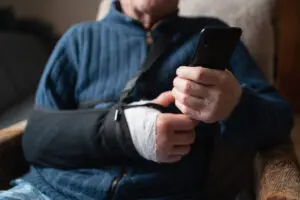What is a Request?
A request is a petition which signifies a desire to a person for something to be granted or done. In legal contexts, a request refers to a formal demand or petition made by one party to another party, often seeking specific action, information, or relief.
According to Black’s Law Dictionary, a request is defined as “a formal demand, made in writing, for something specific.” As such, requests are integral to legal proceedings, serving various purposes such as obtaining documents, admissions, examinations, or rulings from the court.
Requests play a crucial role in litigation and legal proceedings by facilitating the exchange of information, clarifying issues in dispute, and advancing case management. Understanding the process and legal requirements for making requests is essential for attorneys, litigants, and parties involved in legal disputes to effectively advocate for their positions, and pursue remedies for their legal matter.
More information about Request
How Long Does it Take to Receive My Personal Injury Settlement?
If you or a loved one have been injured due to someone else’s negligence, you know how overwhelming an accident’s aftermath can be. Managing medical appointments, financial losses, and daily tasks can be exhausting. Maintaining financial stability for your family may seem impossible, and you are wondering when a settlement is reached, how long it will take to get paid? Compared to the time it takes to settle a claim, the wait for payment is usually short. Once your claim settles, you can receive the money within a few weeks.
aftermath can be. Managing medical appointments, financial losses, and daily tasks can be exhausting. Maintaining financial stability for your family may seem impossible, and you are wondering when a settlement is reached, how long it will take to get paid? Compared to the time it takes to settle a claim, the wait for payment is usually short. Once your claim settles, you can receive the money within a few weeks.
At Munley Law, we understand the financial burdens you are facing. Our personal injury lawyers will work hard to make sure you receive your settlement check in a timely fashion. Contact our personal injury law firm today to schedule a free consultation.
Steps Involved in Receiving a Personal Injury Settlement
A formal settlement agreement is created once both parties agree on a settlement. […]
Read MoreMore information about Request
How Long Does an Insurance Company Have to Settle a Car Accident Claim in PA?
Under the law, your insurance company has a time limit of 15 days to notify you if your claim has been accepted or rejected upon filing. The average time to respond is usually within a few days. However, your insurance provider can request additional investigation time if you have questions regarding your claim or submitted incomplete insurance forms.
rejected upon filing. The average time to respond is usually within a few days. However, your insurance provider can request additional investigation time if you have questions regarding your claim or submitted incomplete insurance forms.
Insurance coverage can quickly become a mess when understanding what’s covered and what’s not. With the help of a Pennsylvania car accident lawyer from Munley Law, you can rest easy knowing your legal claim is handled with the care and dedication it requires.
How Do Car Accident Settlements Work?
You must take a few steps to begin a car accident settlement in Pennsylvania. The first is to seek medical treatment following your accident. You’ll also need to file a police report if officers were not called to the accident scene and submit the accident to your insurance provider. […]
Read MoreMore information about Request
Can I Receive Death Benefits If a Family Member Dies on the Job in PA?
Losing a loved one to a workplace accident or a work-related illness is a devastating experience. In addition to the emotional toll, families often face financial hardships due to the sudden loss of income. Pennsylvania workers’ compensation death benefits are designed to provide financial support to the dependents of workers who die as a result of work-related injuries or illnesses.
Understanding Workers’ Compensation Death Benefits in Pennsylvania
 Workers’ compensation is a state-mandated insurance program that provides weekly benefits to employees who suffer work-related injuries or illnesses.
Workers’ compensation is a state-mandated insurance program that provides weekly benefits to employees who suffer work-related injuries or illnesses.
The primary goal of this system is to ensure that injured workers receive prompt and fair compensation for medical expenses, lost wages, and rehabilitation costs without litigation. In return for these guaranteed benefits, employees generally forfeit the right to sue their employer for negligence, creating a balanced system that protects workers and employers.
Workers’ compensation death benefits are special workers comp financial benefits provided to the dependents of a worker who has died as a result of a work-related injury or illness. […]
Read MoreMore information about Request
Amazon Van Accident Lawyer
It’s no secret that Amazon places immense pressure on its drivers to make the maximum amount of deliveries in the shortest amount of time. Drivers are constantly double-parked, in a rush, distracted by GPS and time constraints, and are often not experienced CDL drivers. As these Amazon delivery vans are a common sight on the roads, the e-commerce giant continues to expand its delivery network. With more and more delivery truck drivers on the road, accidents involving these vehicles are unfortunately on the rise.
If you have been in a collision with an Amazon van, call an Amazon van accident lawyer at Munley Law today. We have been fighting for the rights of accident victims for 65 years.
Types of Amazon Delivery Truck Accidents
The types of Amazon delivery truck accidents include:
- Rear-end collisions often occur when the Amazon van follows another vehicle too closely or fails to stop in time. […]
More information about Request
Pittsburgh Lyft Accident Lawyer

For nearly a decade, Lyft has been a part of daily life for many Americans. It offers a way for people who can’t drive to get where they need to go, a means of getting home safely after a night of drinking, and much more. In 2022, it’s difficult to remember life before rideshare services such as Lyft, as these services have all but transformed the way we move through the world. But for all of its benefits, traveling with Lyft also poses certain dangers. Any time a vehicle enters the road, there is the possibility of a life changing accident, and the situation becomes far more complex when a powerful company such as Lyft is involved.
If you or a loved one has been in a Pittsburgh rideshare accident, you may be overwhelmed and unsure of how to proceed. How can you go up against a huge corporation in order to seek the justice you so deserve? […]
Read More









